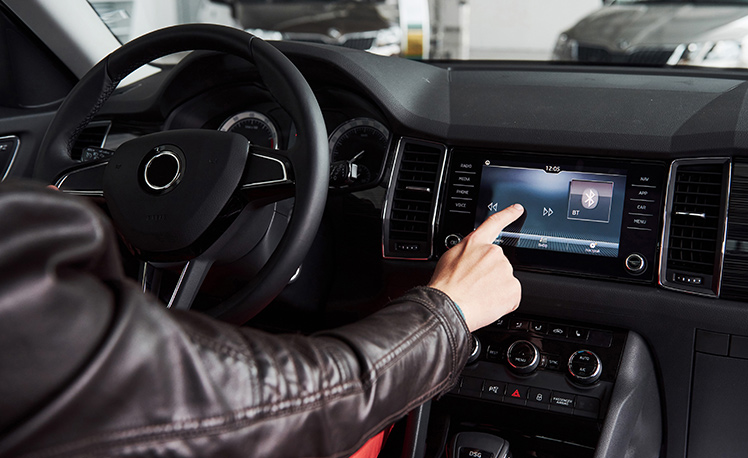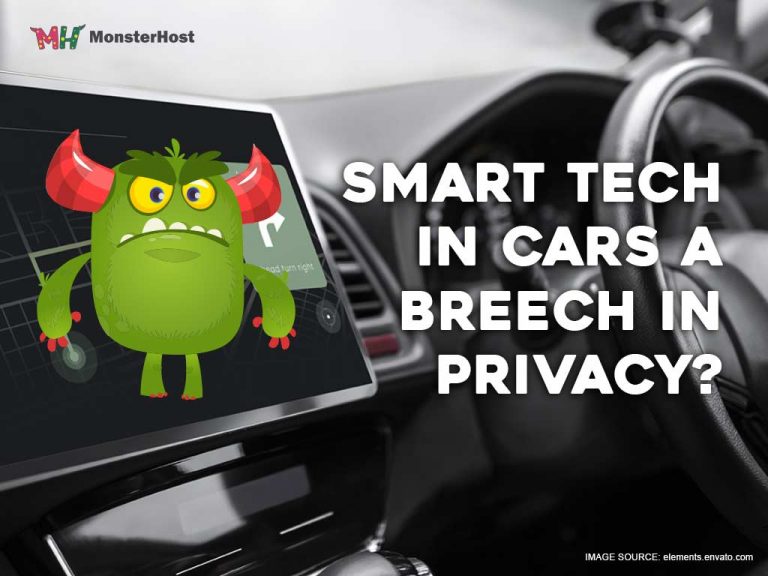Can you imagine driving in your vehicle in complete silence or having to fiddle with knobs to find a station worth listening to? No, not really? Thankfully, you no longer have to. Simply, connect your phone to your vehicle and listen to your favorite music, text, talk and a host of other things.
This is the age of technology and it’s beautiful. Our vehicles are like supercomputers or super-phones that we happen to also get to drive around. They produce the same kind of data as our phones do. The only difference is that most people are aware that a phone does these things- but their vehicles? Not so much. So, today we look at whether smart tech cars can leave you open to a breach of privacy and how VPNS can help.
Did you know that this data is collected and sometimes even sold or given to third-party entities?
Most if not all of us love the sophistication and ease of use that comes from syncing up our vehicles to our phones. That’s actually a specification that we look for in vehicles, how well it interfaces with our devices. However, as we become comfortable with allowing our vehicles to gain substantial insights into our personal lives, we are opening ourselves up to privacy and tracking violations.
There have been instances of vehicular hacking resulting in malicious activities and road fatalities.
Table of Contents
The law and car data
For some 15 years, the United States police have been using the ‘cartapping’ method to help solve crimes. Cartapping is the mandatory retrieval of location and audio data from vehicle technology providers by the Feds.

You may say, ‘ok, that will help with solving crime’ but what about instances where authorized individuals use this data maliciously? Also, even in the cases when such data is used to fight crime, where does the line between that and privacy become blurred?
There have been numerous notable instances of ‘cartapping’ in recent years. One notable instance happened in 2014 with satellite radio and telematics provider SiriusXM. The company was asked to provide the New York police with location information to monitor and trace a vehicle for 10 days. The target vehicle – a Toyota 4-Runner, was incorporated as part of an alleged illegal gambling enterprise.
SiriusXM agreed to the order, activating their stolen vehicle recovery feature connected to the vehicle services technology. It prompts you to wonder how many more cases like these there are.
Black Box Recorder
Another point to touch on is the Black Box Recorder present in all vehicles. The Black Box Recorder collects data such as the speed of the vehicle, break patterns, seat belt use, steering angles, and the position of the throttle. Data from the Black Box is stored for only 3 – 4 weeks at a time.
The vast majority of vehicle owners are not aware of Black Box technology. This ignorance (which is no fault of their own) may seem like a breach in privacy as well, should something go wrong and it needs to be used.
So what’s the solution to this?

To properly address the breach of privacy that vehicle owners can experience, car data regulations need to be put in place. Presently, no regulations exist to control data that is gathered and stored by vehicle manufacturers.
The wider issue remains that these automobiles have Internet access capabilities and systems that collect a host of information about the driver’s habits. In addition, they collect phone call records, text messages, and so much more information.
Also, there is the fact that car user manuals do not, in their privacy policies, disclose, in detail, any data collection practices their manufacturers have installed. There is no evidence in the manual that indicates any effort on their part to inform the owner of circumstances in which the data collected may be used.
VPN and vehicle data security
Anything that is connected to the Internet is potentially a target for hackers and other cybercriminals. This means that while smart cars provide comfort and make our lives easier, they can also pose serious security risks, leading to a breach of privacy if proper steps are not taken.
VPNs (Virtual Private Networks) provide a solution to data security for automobiles. A VPN can indeed secure a vehicle’s data transmission between it and the Internet, as well as other machine-to-machine devices that may be used.
Using a VPN to secure your vehicle is no different from using one to safeguard the connections coming from your smartphone or website. All devices, whether as small as a smartphone or as large as an SUV, as long as they have internet access capabilities, should be equipped with VPN technology to ensure the best security features are implemented.
What’s a VPN? A VPN creates a secure connection between the user (you) and the internet. It does this by encrypting your data by routing it through an encrypted virtual tunnel. Basically your VPN makes your exact location invisible to others.
Final thoughts
We still await official car data regulations to come into existence. In the meantime, be vigilant since data from your car can be sold to third parties without your knowledge. Also, your vehicle can be hacked from almost anywhere. And, the technology in vehicles is only set to improve.
This is not to make you fearful, simply aware and cautious. Ensure that your car uses a VPN to protect your data. Check out the different VPN plans available and choose the one that best fits your need.






